What Are Plugins and How Do They Work?
Last Updated :
08 Apr, 2024
Welcome to our article about what are Plugins and how do they work! Have you ever wondered how your favorite apps and websites get extra features? That’s where plugins come in! Plugins are like small add-ons that make software or websites better. They work by joining with the main software or website, giving you new features or ways to change things.
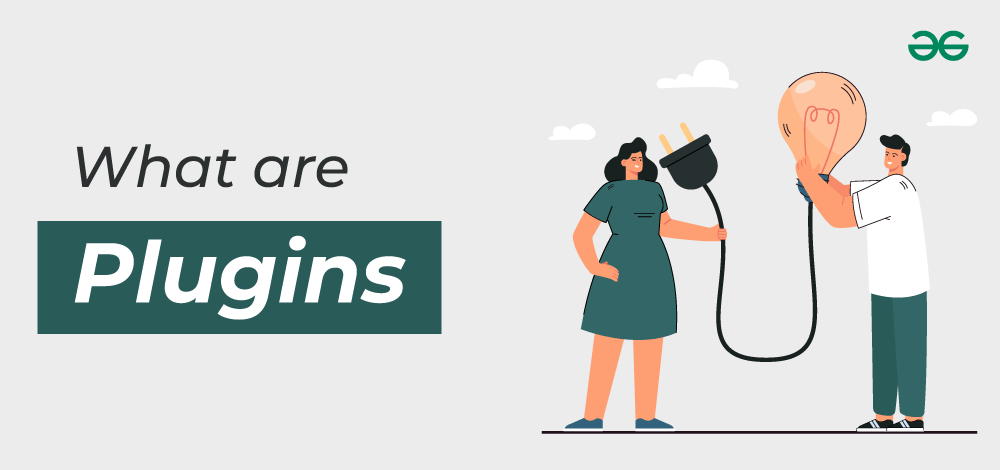
In this article, we’ll talk about plugins, how they work, and why they’re important for making apps and websites more useful. Let’s get started and learn all about plugins!
What Are Plugins and How Do They Work
What are plugins?
Plugins are basically software that adds extra functionality over the existing ones in a software application. They enable apps and programs to take on new capabilities without getting completely modified. Plugins are also known as add-ons, extensions, or modules. They are integrated into the software to provide additional functionalities. For example, if you are using a web browser, you can install an ad-blocker plugin that will help you get rid of the unwanted ads you get while surfing the web.
You’ll see how plugins working by seamlessly integrating with software or websites, expanding their capabilities and providing additional functionalities to enhance your experience.
Explore what are plugins, and understand plugins working while learning how to install and enable them to enhance your browsing experience.
How do plugins Work?
Plugins work by hooking into the existing codebase of a host app. They connect to the main software through an application programming interface (API) or other integration points offered by the core program. This allows them to “plug into” certain functions and data sources to do their work. Applications provide proper guidelines for developers on how to develop plugins so that they can work seamlessly with their applications.
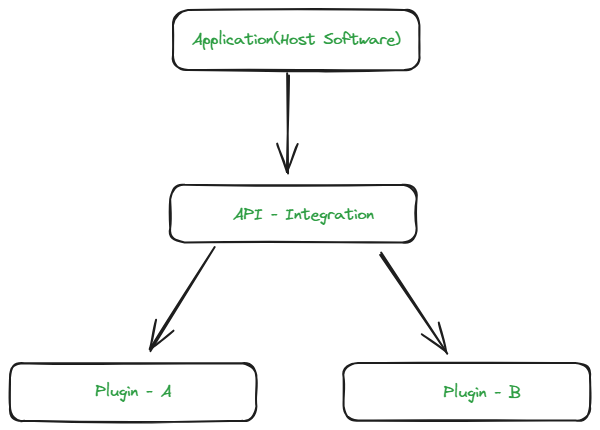
Workflow of plugins
- Application (Host-Software) is the main software application on top of which plugins are built. The application has vital functionalities and offers integration points via an API(Application Program Interface) through which other software components can easily merge their code into the host software without modifying its core functionalities.
- API/Integration Layer: This is the interface or we can say the bridge that plugins use to communicate with the host application. It provides hooks and access points for plugins to hook. These APIs enable the plugins to access the host software’s functionalities and merge new functionalities to the core of the host software easily. APIs also provides a set of rules that the developers must follow in order to build the plugins.
- Plugins/Extensions: The plugins provide extra functionalities to the application (host) software by merging with it via the API. Multiple plugins can simultaneously integrate with the core application easily. The user can merge as many plugins as they want to the host software to get extra functionalities provided by the plugins.
Benefits of Using Plugins
There are many advantages of using plugins and some of them are :
- Extra Functionalities: Plugins provide users with a wide range of extra features, expanding the capabilities of the host software.
- Customization: Users can modify their core software as per their needs to meet specific requirements, creating a personalized and efficient workflow.
- Time Efficiency: Plugins can easily automate repetitive tasks, saving users time and effort and increasing user’s productivity.
- Adaptability: Plugins can be easily updated or replaced by another plugin to ensure compatibility with the latest versions of the core software.
- Extend functionality without altering core code.
- Easy to install and update.
Applications of Plugins
Plugins have applications in various software domains. Some of them are:
- Web Browsers: Plugins for web browsers are known as extensions, such as Adobe Flash Player, Grammarly, and Ad-blockers, VPN enable browsers with additional functionalities.
- Content Management Systems (CMS): WordPress plugins, provides a variety of functionalities, from adding social media integrations to enhancing SEO (Search Engine Optimization) for a website and much more.
- Media Players: Plugins like Winamp DSP plug-ins allow users to customize audio playback with effects and visualizations.
- Graphic Design Tools: Adobe Photoshop plugins like Corel, and Avenza provides new filters, and editing tools which provides more functionalities to the users.
- AI Tools: Plugins provide additional functionalities to AI-Chat bots like Chat-GPT which makes them more powerful to cater to the user needs.
Some Famous Plugins to Use
Some examples of well-known plugins include:
1. Yoast SEO – Optimization for WordPress sites
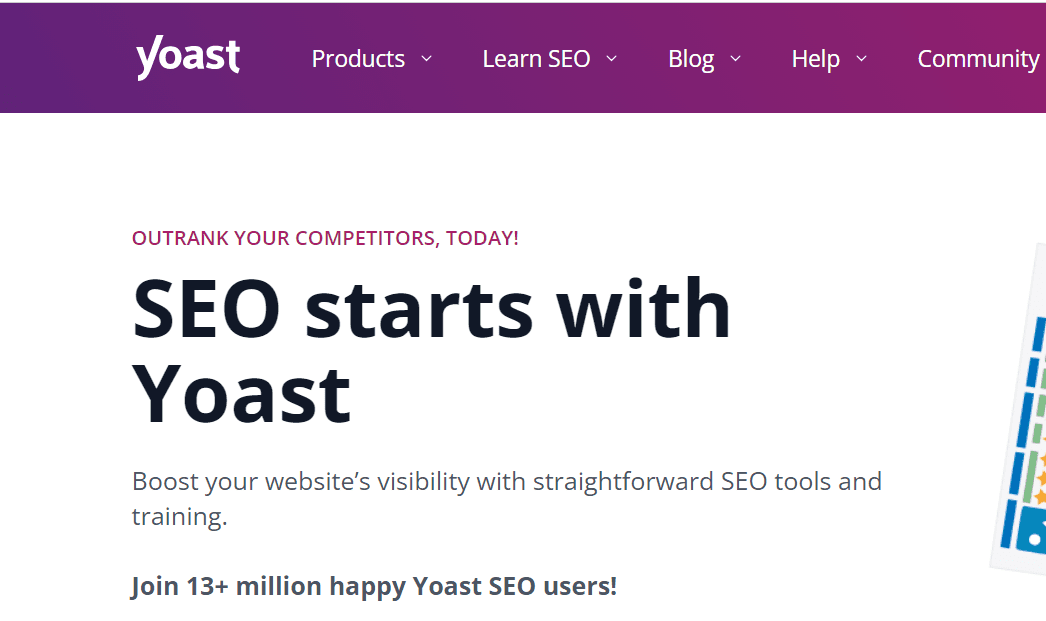
2. WooCommerce – eCommerce for WordPress

3. TablePress – Advanced tables in WordPress
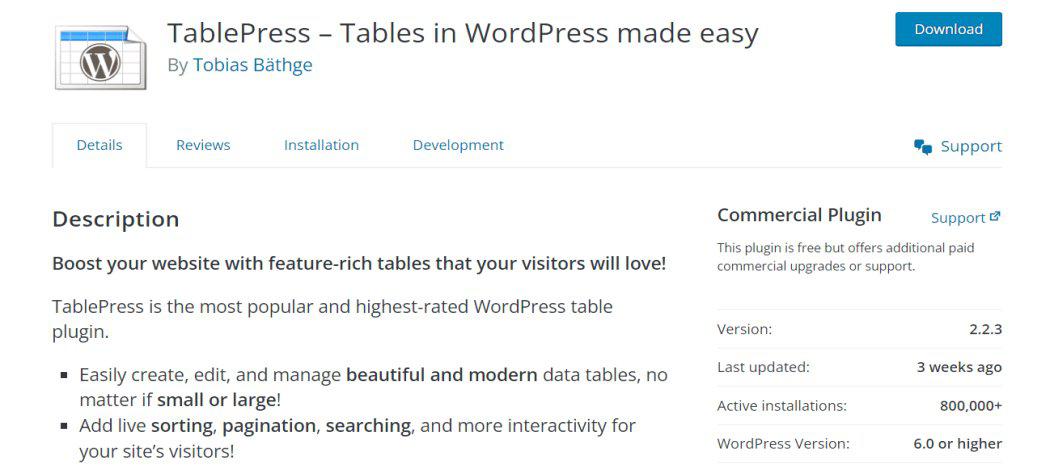
4. LastPass – Password manager browser extension

5. Grammarly – Spelling & grammar checker

6. Adobe Camera Raw – Photo editing in Photoshop

Are plugins and Extensions the Same?
Yes, plugins and extensions are the same in general. Plugins are typically used to refer to software that adds functionality to a specific application. For example, a plugin for Adobe Photoshop might add a new filter or tool.
A plugin for a web browser is often known as an Extension. For example, an extension for Chrome browser known as ad-blocker can block ads on the web browsers.
How to Get Plugins?
Plugins can be directly downloaded from their official sites. However, you can also download them from the web stores of the web browsers. Each web browser has its own web store from where you can directly download the plugins. Make sure you are downloading the plugin from your supported web browser store only or else they might not function properly after installation.
Following is the list of web stores for different browsers from where you can download the plugins:
How to Install and Use Plugins?
To install a plugin you must go to the official site of the plugin, download it, and then enable it to use it. If you want to get a plugin for your web browser then go to the respective web store of the browser and then install it. In this tutorial, we will download the famous plugin for browsers Grammarly just for the demo purpose to teach users how to install a plugin and enable it. The procedure is the same for almost every plugin so you can follow the below steps to download the plugins of your choice and enable them. Explore What Are Plugins, and understand Plugins working while learning how to install and enable them to enhance your browsing experience.:
Step 1: Go to the plugins web store of your browser. In my case, I am using Google Chrome.
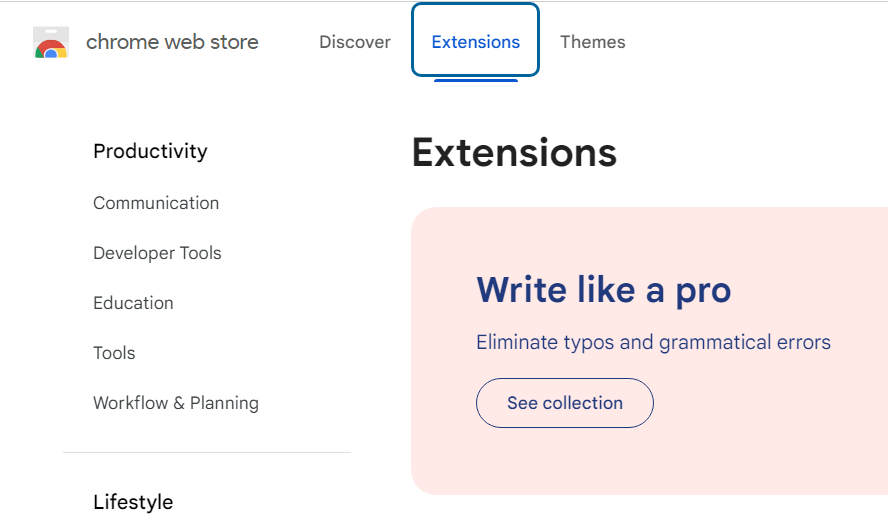
Step 2: Search for the plugin you want in the search bar.

Step 3: Click on Add to Chrome and wait till the plugin is installed.
Step 4: Go to your browser settings.

Step 5: Click on extensions.
Step 6: Enable the plugin you installed.
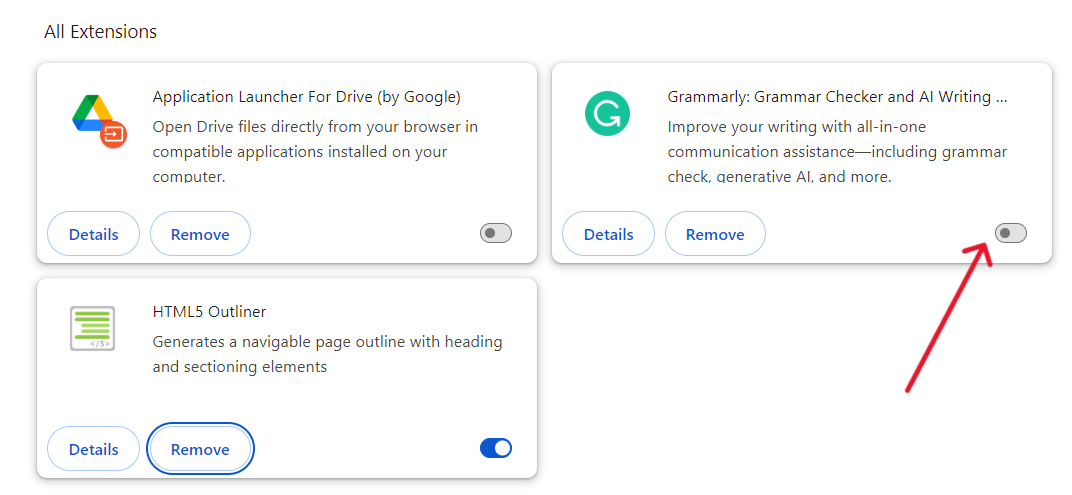
Step 7: Restart your browser and from now on you will be able to use all the functionalities of the plugin you installed.
Conclusion
Plugins have revolutionized the software industry by providing extra features to the existing software. They have a variety of applications in different software categories. The choice to choose the right plugin is completely up to you. But make sure to download the plugins from the trusted sources only. Never download any plugins or extensions from untrusted sites. Hackers might steal your sensitive data by providing your malwares in place of plugins. Always ensure that the plugin you are downloading for your software is safe and secure. Explore the world of What Are plugins, and understand how plugins working can enhance your software experience while staying vigilant about online security.
What Are Plugins and How Do They Work? – FAQs
Can I use the same plugins on different software applications?
No, a plugin is designed for a specific software application only. So you can’t use it over different software applications.
Are plugins safe to use?
Yes , plugins are safe to use if they are downloaded from trusted official sites only.
Is coding required to use plugins?
No, peoples having zero knowledge of coding can also use plugin by following the simple steps of installation. However knowledge of coding will help you to understand how plugins work actually behind the scene.
Can I disable the plugins once installed?
Yes, you can easily disable or uninstall plugins by going to the settings of your application.
Are plugins and extensions different?
Plugins and extensions are not totally different. Basically plugins for web browsing applications are known as extensions.
Share your thoughts in the comments
Please Login to comment...